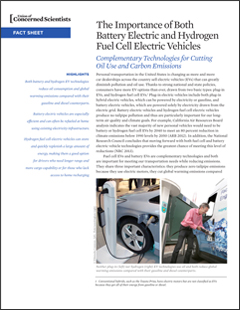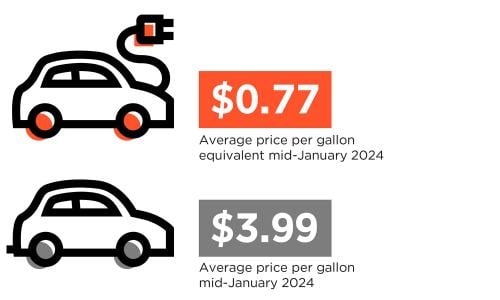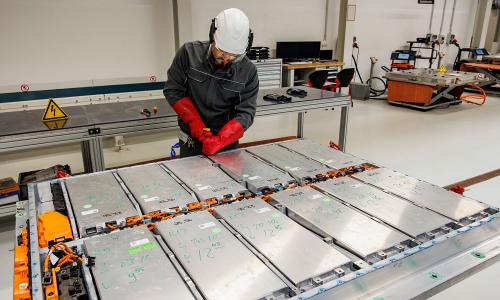Cutting U.S. oil use and curbing climate change requires a significant shift toward clean transportation technologies. These technologies include battery electric vehicles, which run on electricity from the grid, and fuel cell vehicles, which run on hydrogen gas. Both technologies can significantly improve air quality and cut carbon emissions.
Despite sometimes being portrayed in competition, battery-electric and fuel cell vehicles have complementary strengths, and can both be used to meet U.S. climate goals.
Battery-electric cars can be recharged at home (or, increasingly, at work), and can often take advantage of existing electricity infrastructure. They tend to be convenient, clean, and cost-effective sedans and hatchbacks, well-suited to urban commuter environments.
Hydrogen fuel cell vehicles are refueled much like conventional vehicles and enjoy a longer range than many battery-electric models. With the right fueling infrastructure put in place, fuel cells can be a good option for larger vehicles, longer-distance driving, and drivers who lack access to home charging.




